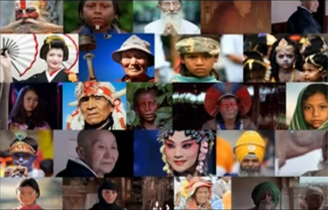37 C/5 Approved – Programme and Budget
Major Programme IV
Culture
04001 Action in the first quadrennium (37 C/5) of the Medium Term Strategy 2014-2021 (37 C/4) will promote the pivotal role of culture, heritage and creativity as a means of achieving sustainable development and peace. It will do so by implementing strategic objectives 7 “Protecting, promoting and transmitting heritage” and 8 “Fostering creativity and the diversity of cultural expressions”, through 2 Main Lines of Action and 7 expected results, in order to demonstrate the power of culture as a driver and enabler of peace and sustainable development through the Organization’s flagship programmes and standardsetting instruments.
04002 Through its core functions as standard-setter, capacity-builder and catalyst for international cooperation, UNESCO will sustain and strengthen its leadership in Culture by pursuing its action at international, regional and country level and by further mainstreaming of the culture dimension in national and international development policies and strategies. This will be done in the context of the UN Reform and Delivering as One, the achievement of internationally agreed development goals, including the Millennium Development Goals, and the contribution to the Post-2015 UN Development agenda.
04003 Particular attention will be paid to accompanying Member States in the effective implementation and monitoring of the UNESCO normative instruments, their national implementation and support to capacity-building, strengthening policy, legal, and institutional environments, enhancing knowledge management and promoting best practices, including through a more systematic use of new technologies.
04004 Under the first MLA, entitled ‘Protecting, conserving, promoting and transmitting culture, heritage and history for dialogue and development’, action to protect, conserve, and promote heritage will remain a key priority in order to underscore the central role of heritage in promoting sustainable development, reconciliation and dialogue within and among countries. Specific actions to raise the awareness of youth about heritage values will also be pursued. Relationships with other relevant Conventions, including the Convention on Biological Diversity, and the Ramsar Convention, as well as Intergovernmental Programmes such as the Intergovernmental Oceanographic Commission (IOC) and the Man and the Biosphere Programme (MAB) will be strengthened in order to maximize the wise and sustainable management of these irreplaceable assets. Flagship initiatives on cultural interactions and intercultural dialogue such as the Slave Route project and the pedagogical use of UNESCO’s General and Regional Histories, in particular the General History of Africa, will also be pursued. The social and educational roles of museums as vectors for intercultural dialogue will be explored and their links with all the cultural conventions developed, and in particular with the 1970 Convention to better combat the illicit trafficking of cultural property.
04005 The second Main Line of Action, ‘Supporting and promoting the diversity of cultural expressions, the safeguarding of the intangible cultural heritage, and the development of cultural and creative industries’, will concentrate on strengthening the legal, policy and institutional environments that promote living heritage and creativity and support the diversity of cultural expressions. This is to be achieved through the safeguarding of intangible cultural heritage and support for the emergence of dynamic cultural and creative industries, particularly mechanisms that foster local production of cultural goods and services, the development of local markets and access to platforms for their distribution/exchange worldwide. Particular attention will be given to capacity building in priority areas, including for youth.
04006 Under both MLAs, a more systematic use of new technologies will also help improve knowledge management and the sharing of best practices in the field of culture.
04007 For all expected results under the two MLAs, Headquarters will provide the Secretariat of the different normative instruments and lead policy development and monitoring, working in close complementarity with all Field Offices to ensure effective implementation of these instruments at country level and integration of culture dimensions into UNDAFs and the relevant UN country programmes.
04008 Although activities under each of the MLAs have been clearly associated to the achievement of one of the two strategic objectives of the Medium-Term Strategy, in certain cases they may also contribute to the achievement of both. The role of World Heritage in promoting creativity or of intangible cultural heritage in preventing and recovering from disasters are cases in point. 37 C/5 Approved – Major Programme IV 160 04009 As part of its on-going efforts to improve service delivery in and to Member States and to promote effective and integrated implementation of its cultural conventions, UNESCO will make proposals for greater convergence of the processes, such as financial and technical assistance, capacity building, periodic reporting and knowledge management, associated to the conventions. Joint training activities at the national and regional level will also be pursued, where appropriate.
Address: 81, Laiguangying West Road, Chaoyang District, Beijing, China
Zip Code: 100021
Tel: 86-10-64966526
Fax: 86-10-64969281
E-mail: administration@crihap.cn
NEWSLETTER
Leave us your e-mail address, we'll let you know about current events.


